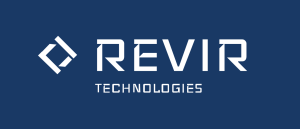
Justice and Public Safety AI Summit
The Justice and Public Safety Artificial Intelligence (AI) Summit (the Summit) is a two-day operations, policy, and technology event occurring on September 4th – 5th, 2024 at the Hyatt Regency, Reston, Virginia. The Summit, held with support from the Miller Center on Policing and Community Resiliency at Rutgers University, the Global Consortium of Law Enforcement Training Executives, the University of Ottawa Professional Development Institute, and other international associations, will provide an opportunity for government practitioners and industry experts to work together to explore the intersection of AI with justice and public safety to showcase the opportunities and the positive impact AI can make on our society.
AGENDA
The agenda will address the following topic areas: National AI Legislation; Operational Use Cases: Ethical Use of AI; AI Innovations; Privacy and Security: Standards Usage; and, Bridging the Gap from Policy to Technology.
September 4, 9:00 AM – 5:00 PM EST
September 5, 9:00 AM – 5:00 PM EST
In addition to the plenary sessions, a Learning Center where industry sponsors can display their existing solutions to address the AI Innovation and Operational Use Cases will be available.
Location
Hyatt Regency Reston
Regency Ballroom
1800 Presidents St, Reston, VA 20190
Reserve your Room
A room block has been reserved with an event rate of $219/night. The deadline to make reservations at the discounted rate is Monday, August 26th.
Background
On October 30th, 2023, the President of the United States issued “Executive Order on the Safe, Secure, and Trustworthy Development and Use of Artificial Intelligence” that directs 1) Developers of the most powerful AI systems to share their safety test results and other critical information with the U.S. government; 2) Develop standards, tools, and tests to help ensure that AI systems are safe, secure, and trustworthy; 3) Protect Americans from AI-enabled fraud and deception by establishing standards and best practices for detecting AI-generated content and authenticating official content; 4) Establish an advanced cybersecurity program to develop AI tools to find and fix vulnerabilities in critical software; and, 5) Order the development of a National Security Memorandum that directs further actions on AI and security. In addition to the core five (5) directives, the Executive Order directs government agencies to protect Americans’ privacy, Advancing Equity and Civil Rights, and Ensuring Responsible and Effective Government Use of AI.
On March 13th, 2024, the European Union (EU) also passed an Artificial Intelligence Act which is the first comprehensive act in the world. The EU AI Act clearly states the ban of certain “AI applications that threaten citizens’ rights, including biometric categorization systems based on sensitive characteristics and untargeted scraping of facial images from the internet or CCTV footage to create facial recognition databases.” It also states Law Enforcement Exemptions – “The use of biometric identification systems (RBI) by law enforcement is prohibited in principle, except in exhaustively listed and narrowly defined situations. “Real-time” RBI can only be deployed if strict safeguards are met, e.g. its use is limited in time and geographic scope and subject to specific prior judicial or administrative authorization. Such uses may include, for example, a targeted search for a missing person or preventing a terrorist attack. Using such systems post-facto (“post-remote RBI”) is considered a high-risk use case, requiring judicial authorization being linked to a criminal offense.”
The White House Executive order and the EU AI Act directly impact how the Justice and Public Safety agencies should implement AI-based capabilities to serve and protect our citizens, homeland, and national security interests. Justice and Public Safety leaders need to be forefront in discussing how these acts will impact their day-to-day operations as they start implementing AI-based capabilities and address the citizens, the lawmakers and the efficacy groups’ concerns regarding the ethical use of this technology.
Goals
At the Summit, attendees will discuss AI-based capabilities, policy implications, security and privacy considerations, and standards that need to be considered by the Justice and Public Safety community. During the summit, industry will also have the opportunity to educate practitioners on innovations occurring within AI to demonstrate how government agencies can benefit from these improvements.
After the summit, organizers – with assistance from participants – will develop an AI Roadmap for Justice and Public Safety agencies to demonstrate the best path for the ethical use of AI-based capabilities. Other Summit products to be considered are the development of a catalog of success stories and a peer-to-peer directory facilitating contacts between individuals interested in utilizing various AI capabilities and available providers.
Thank You to Our Summit Sponsors!




Registration
Loading...